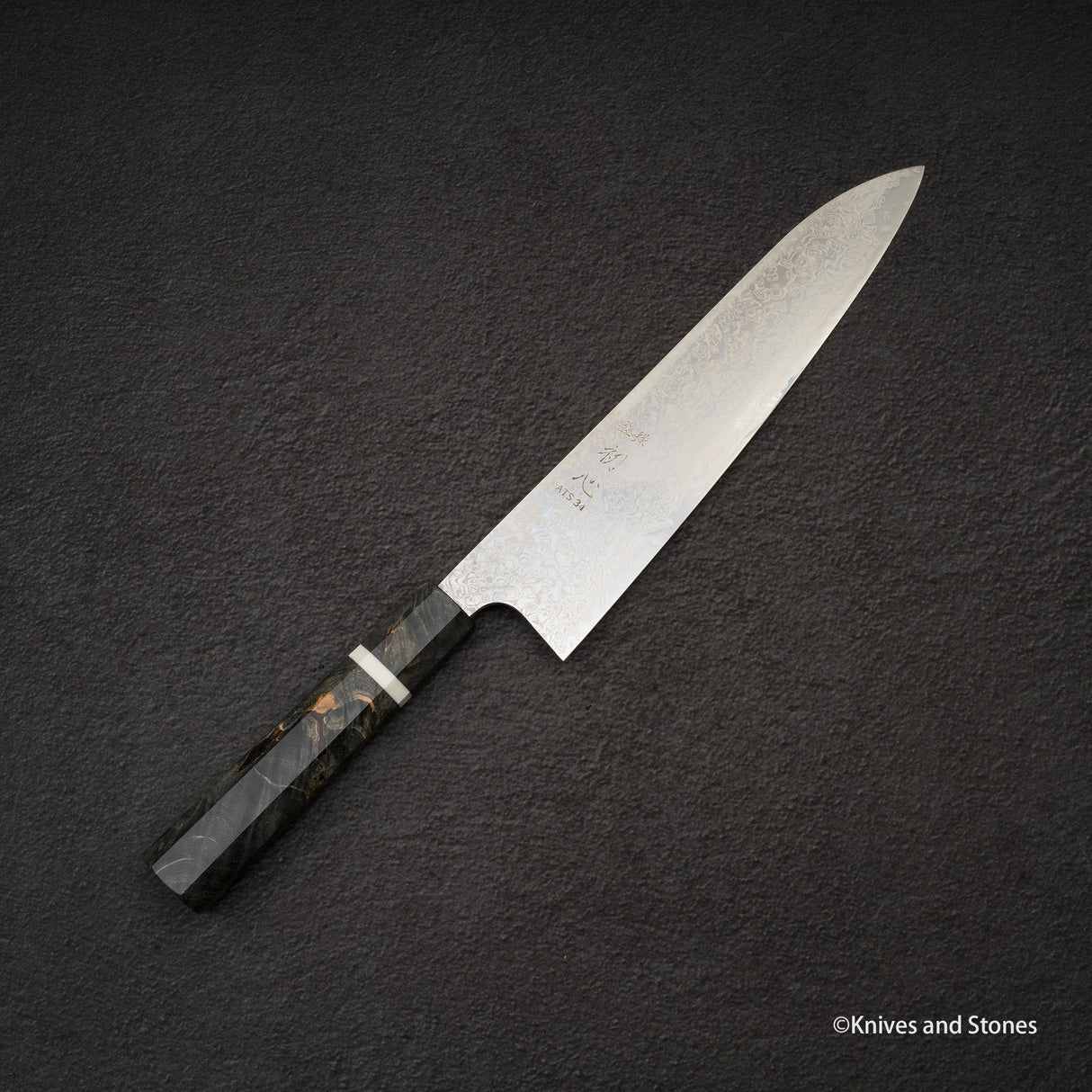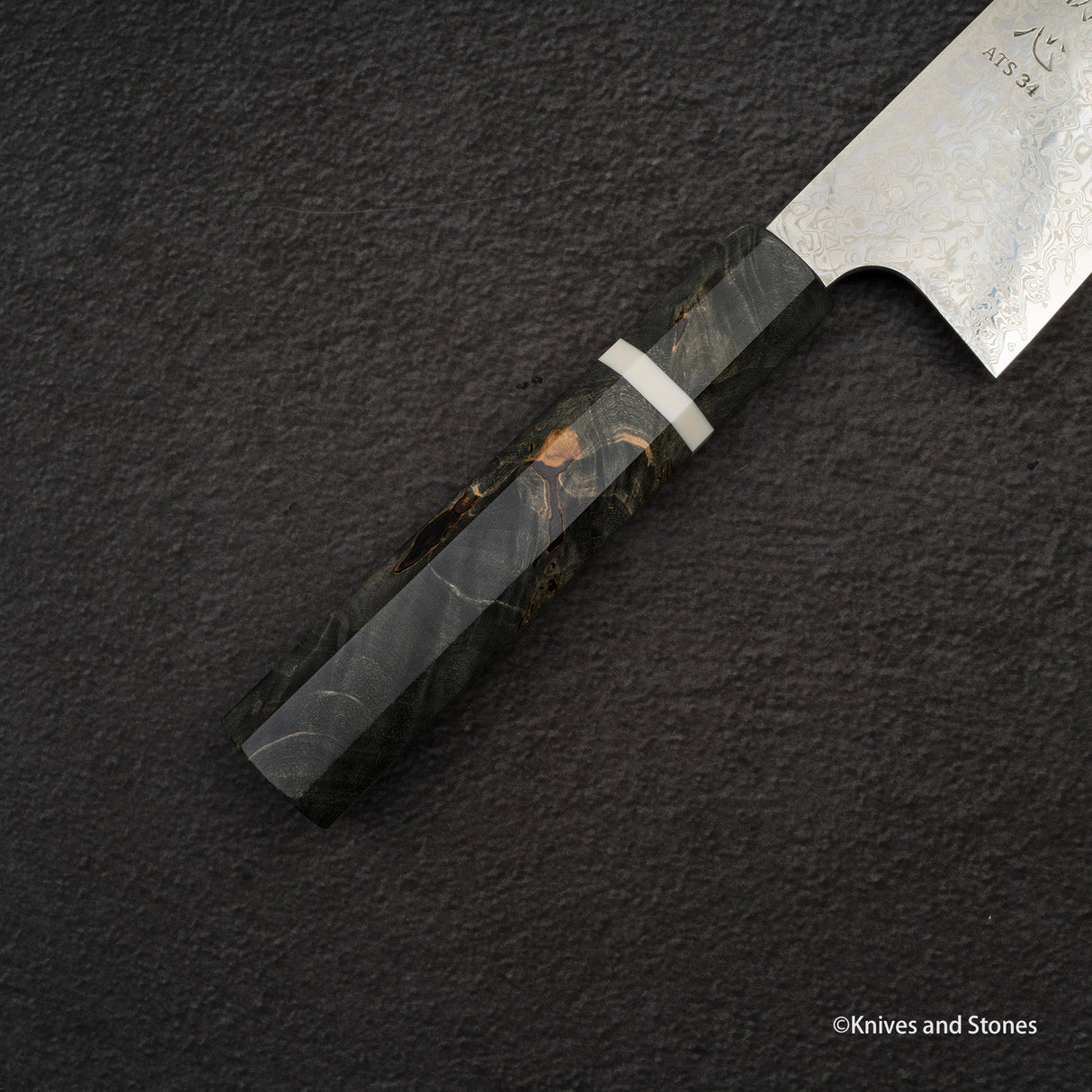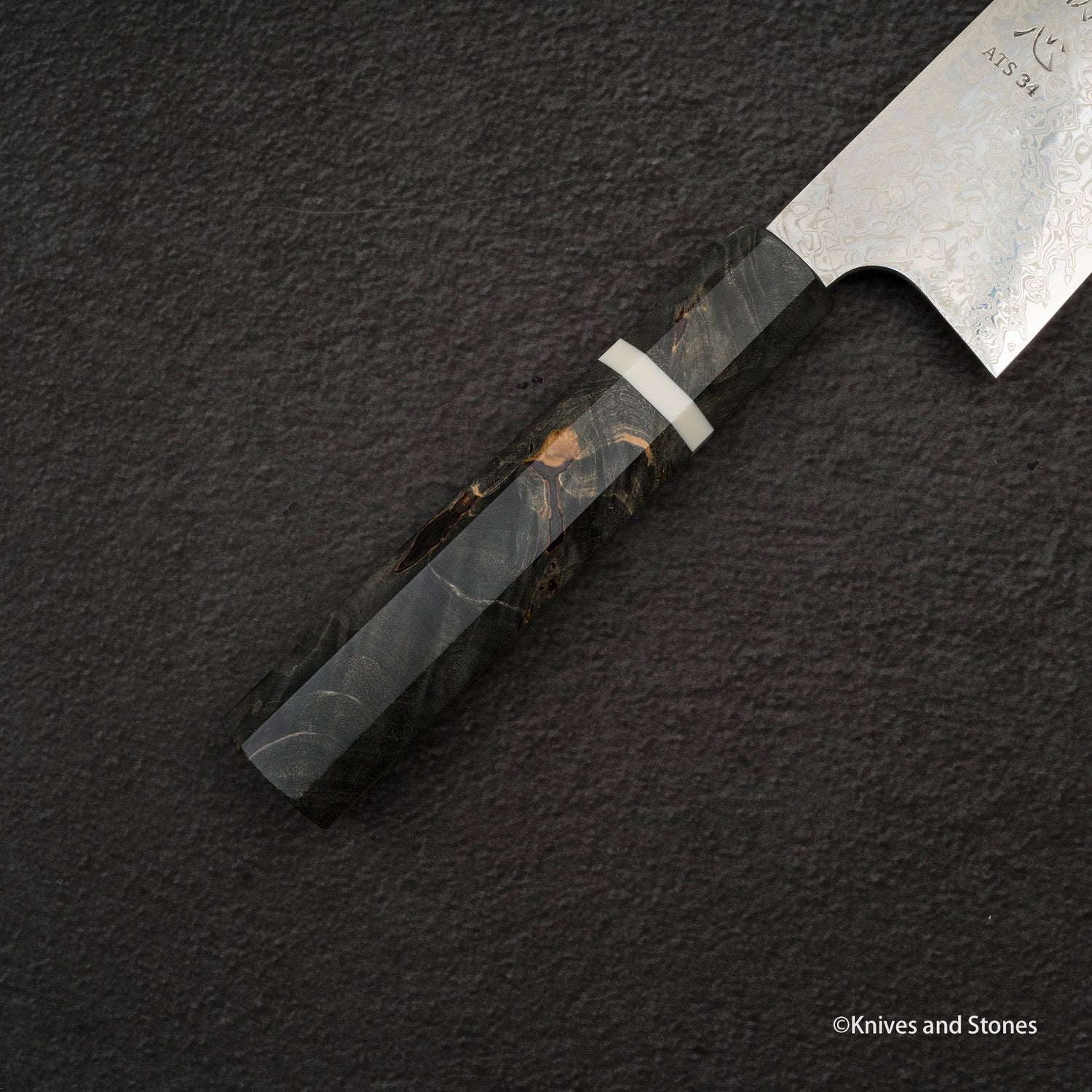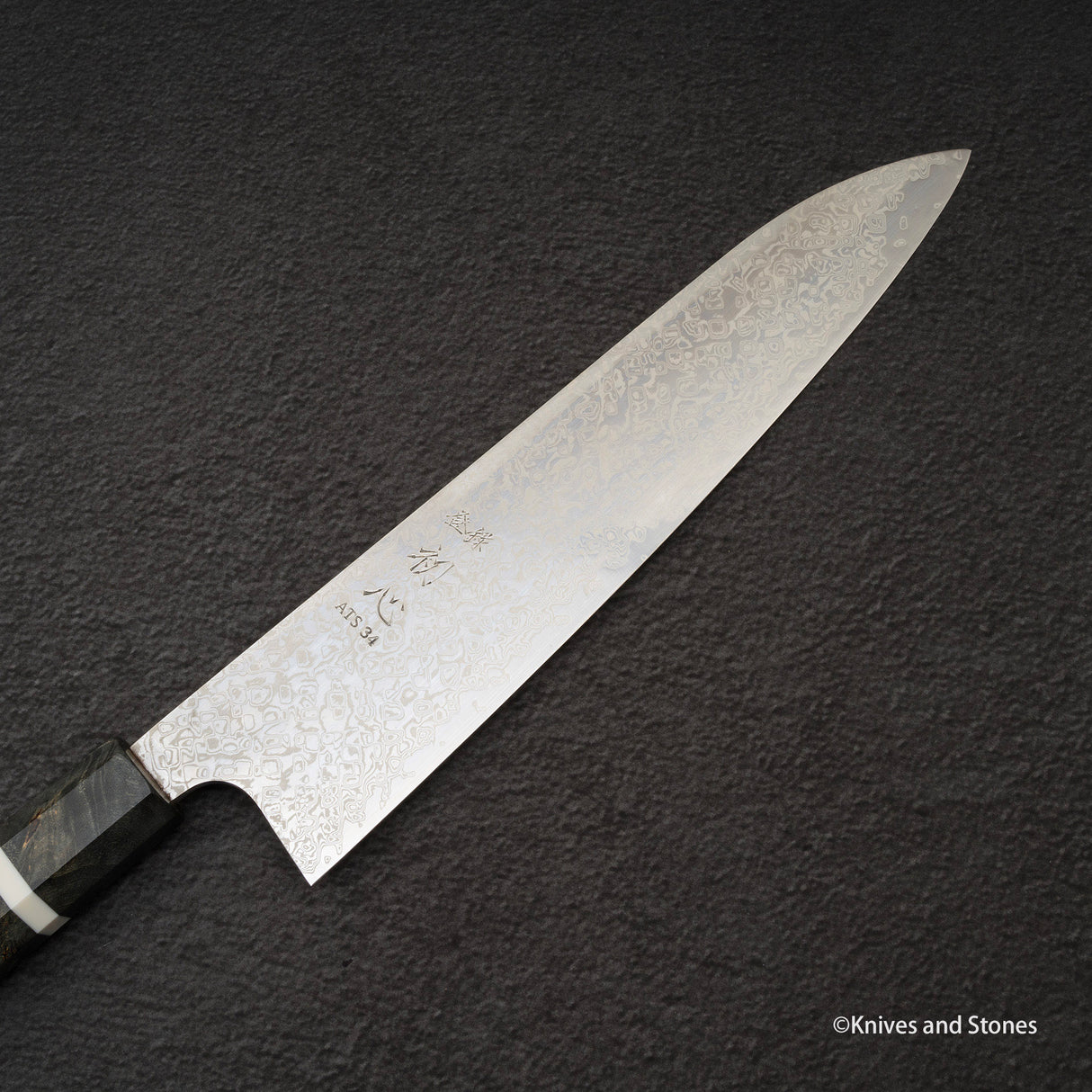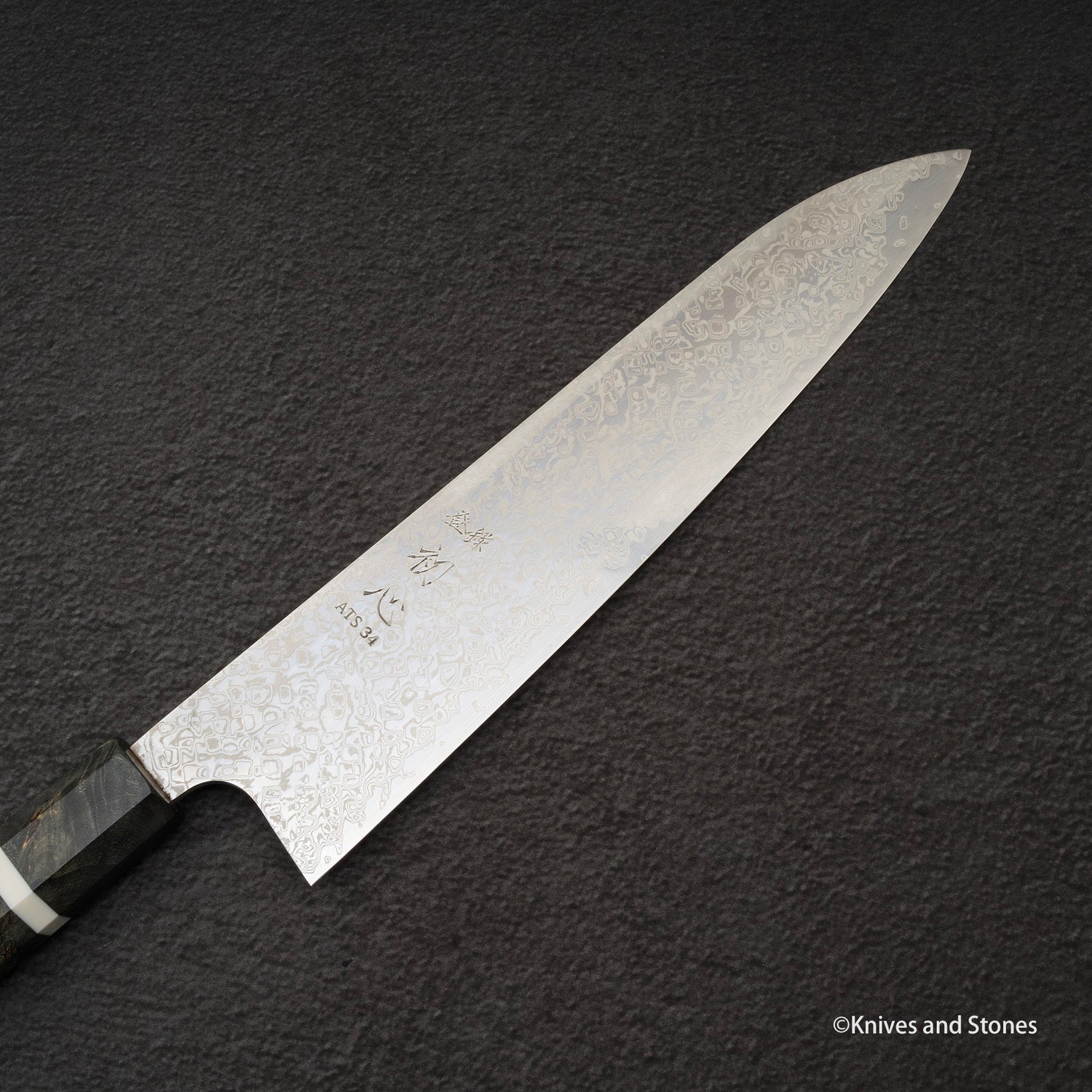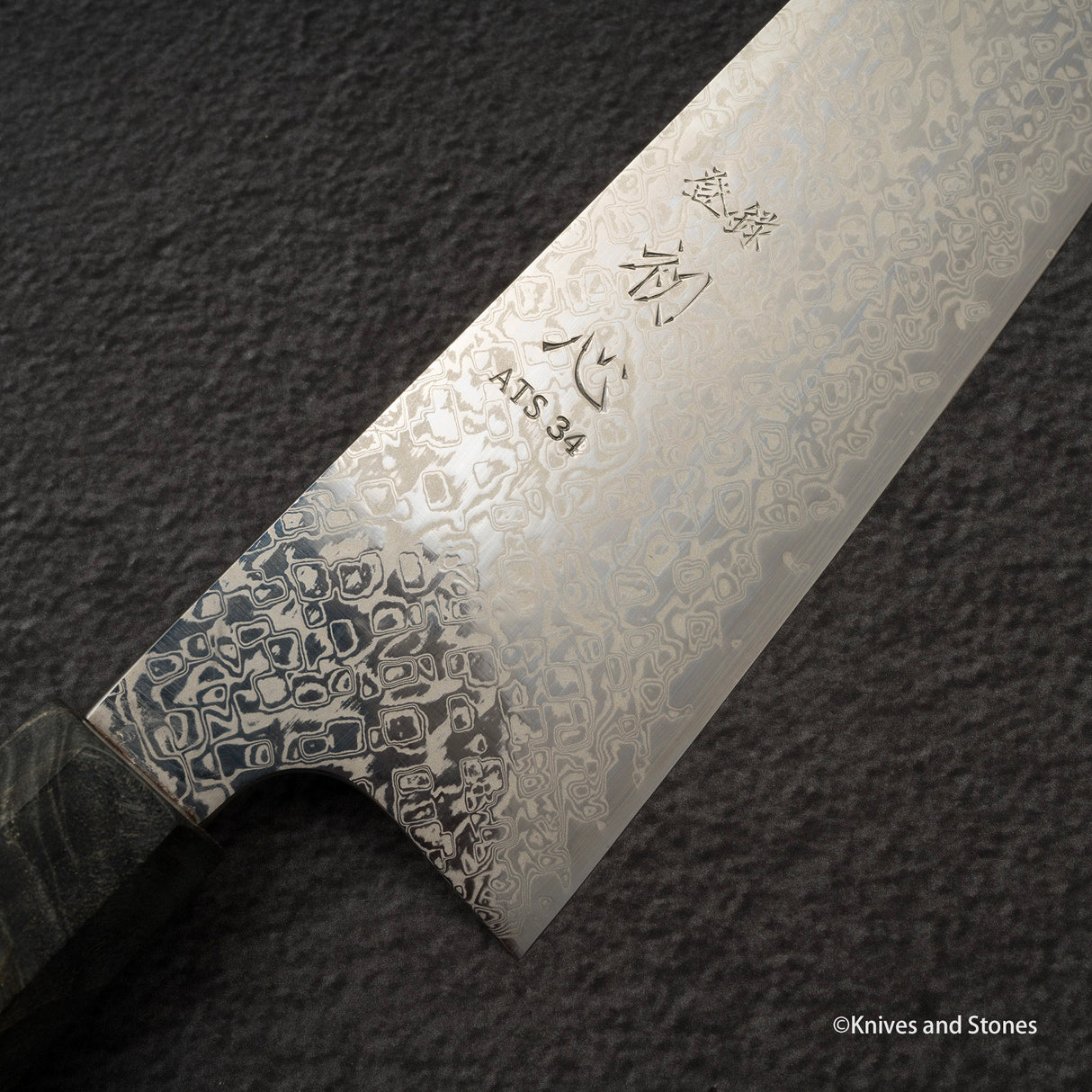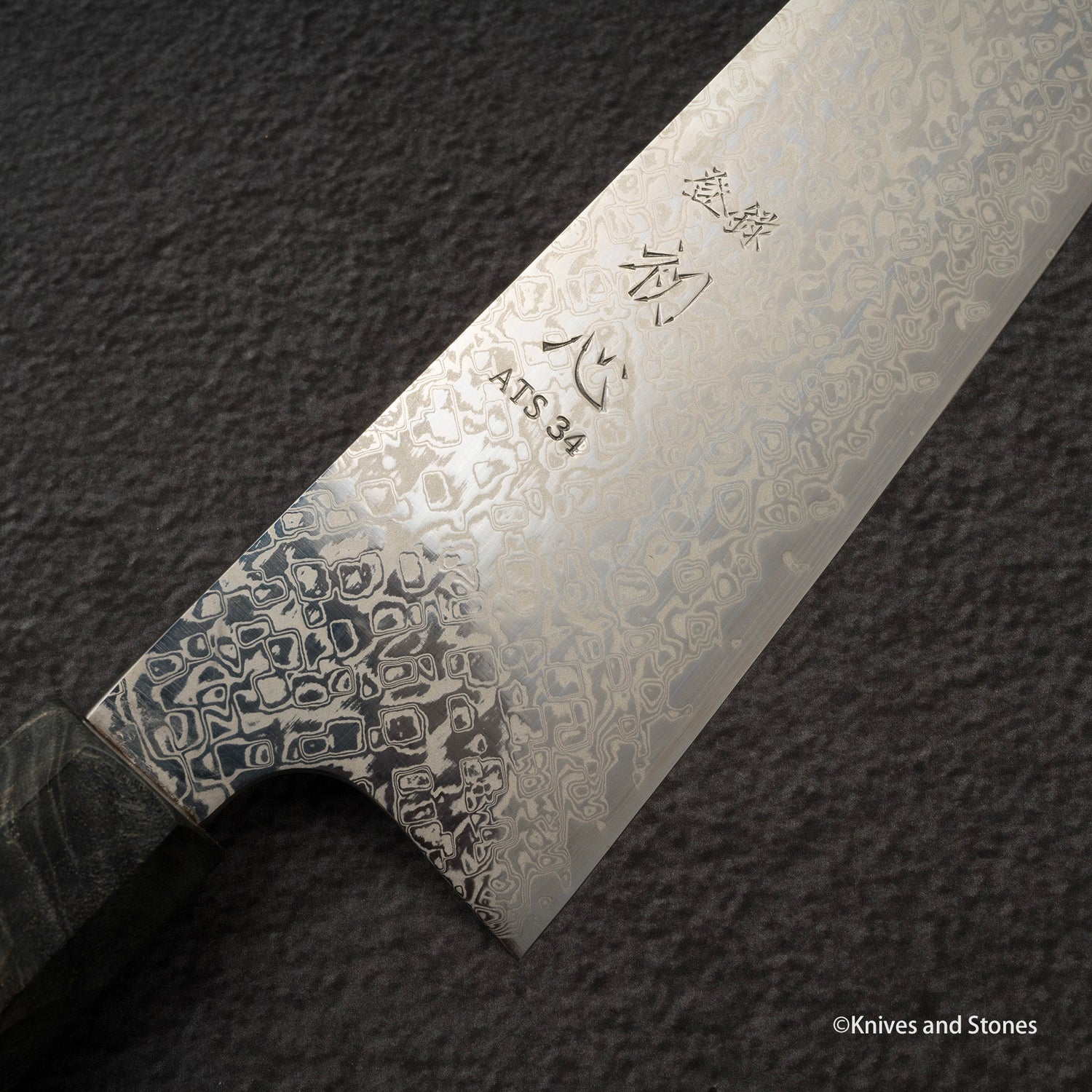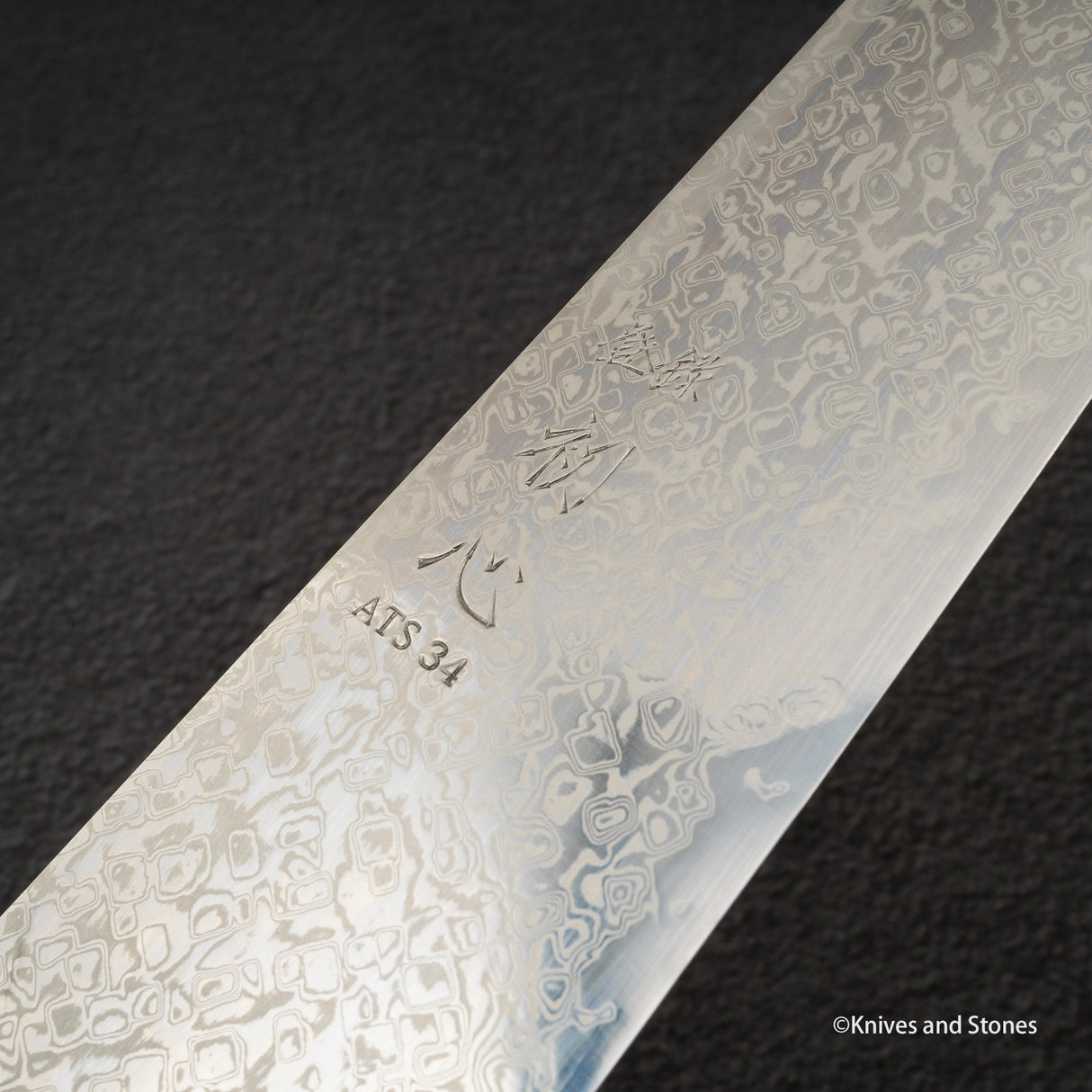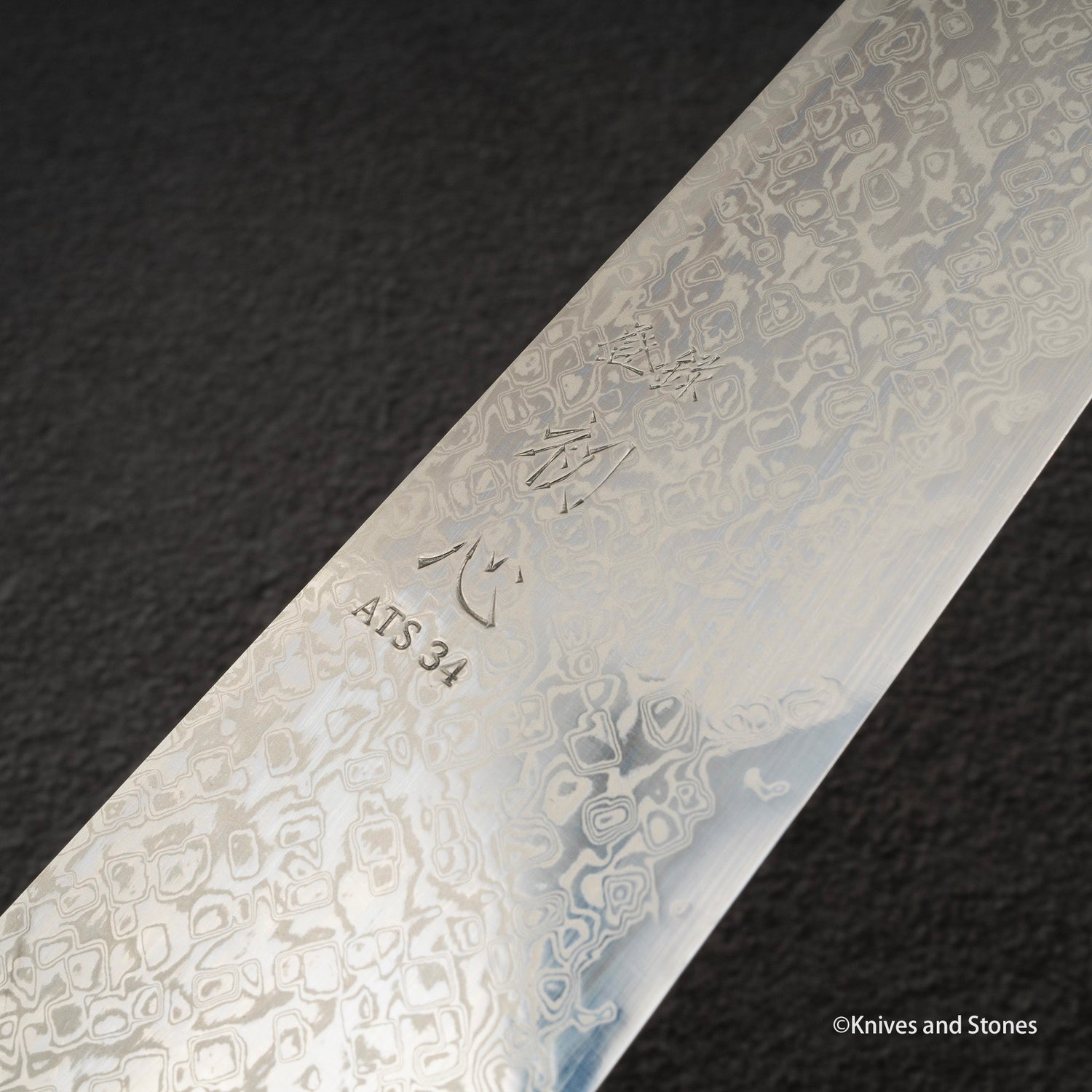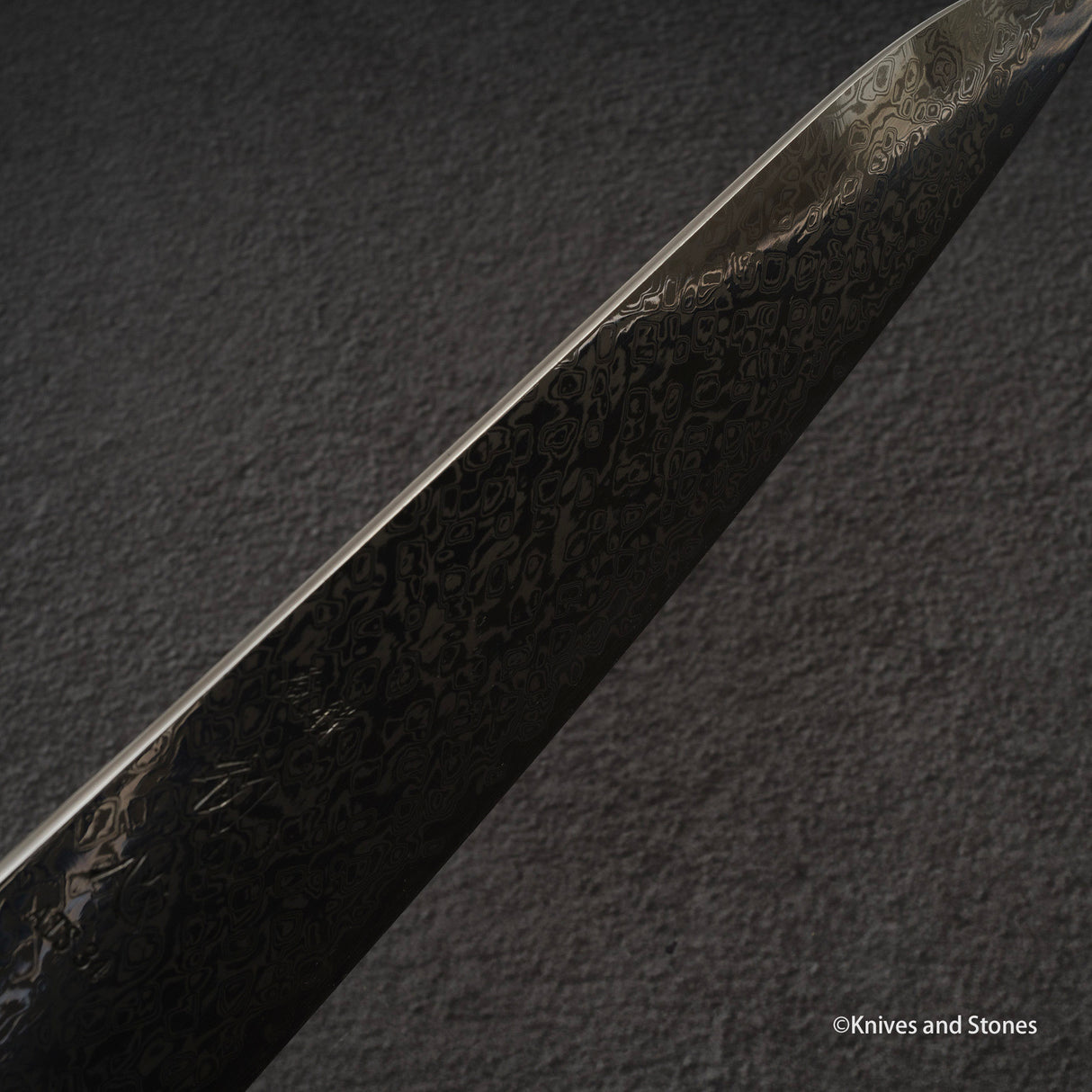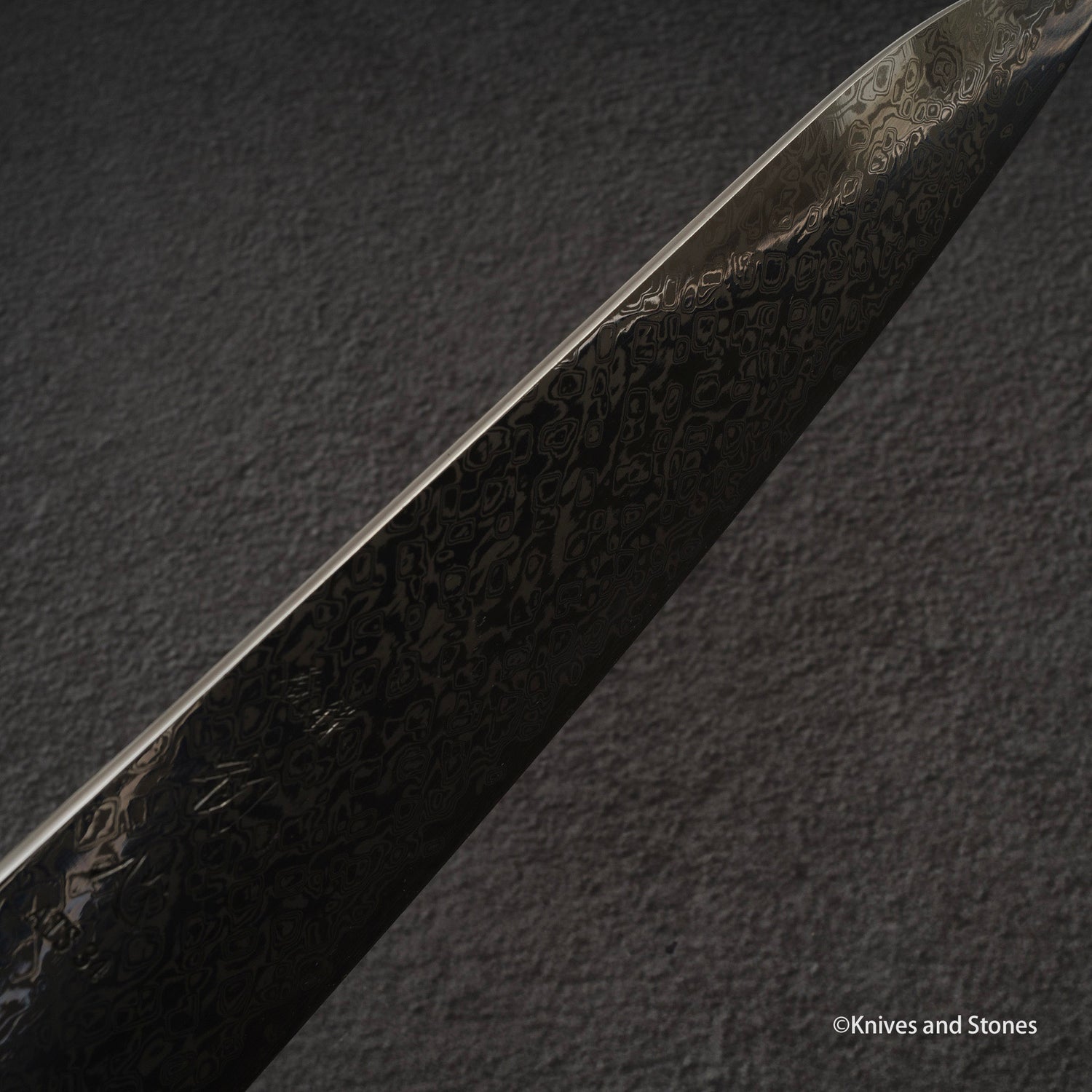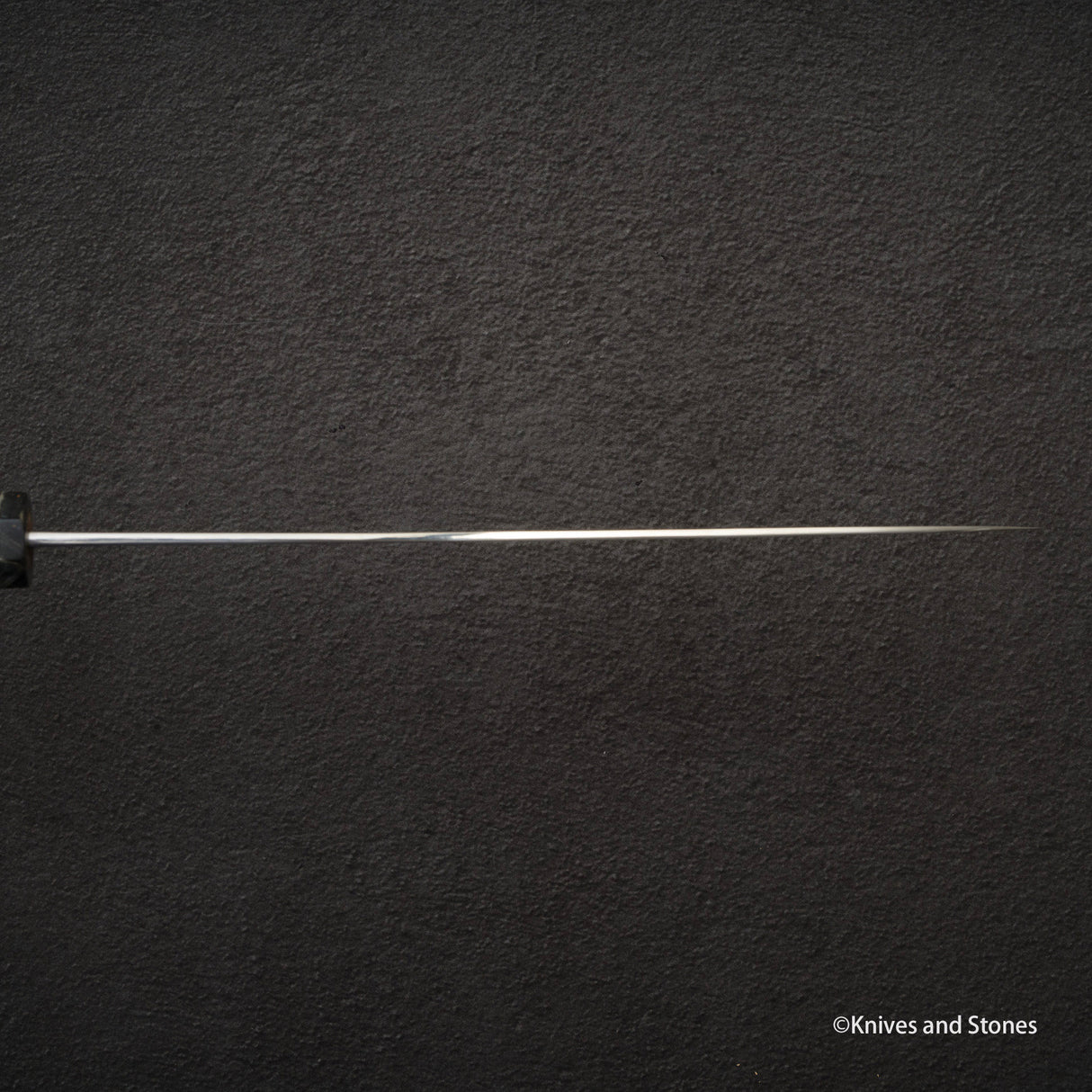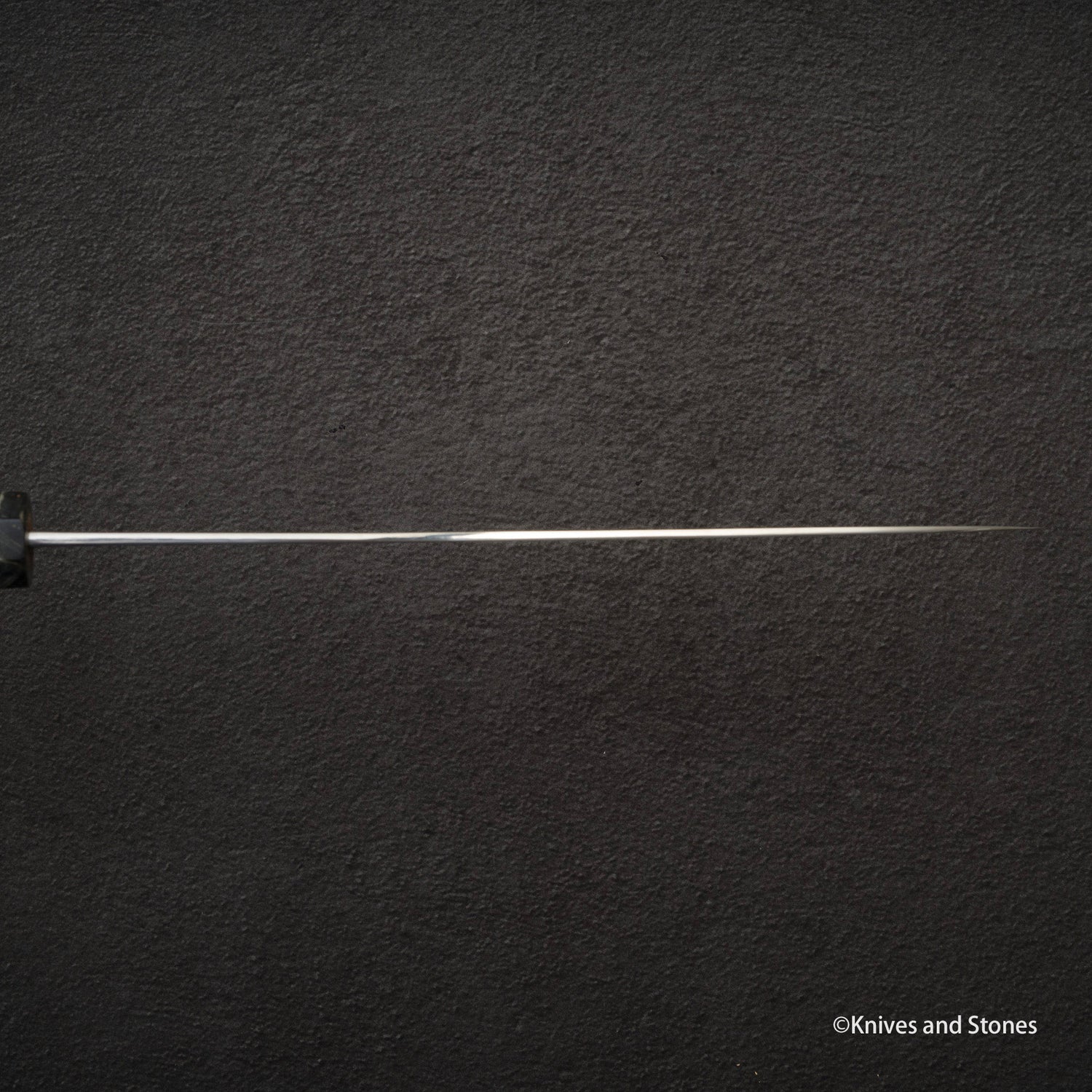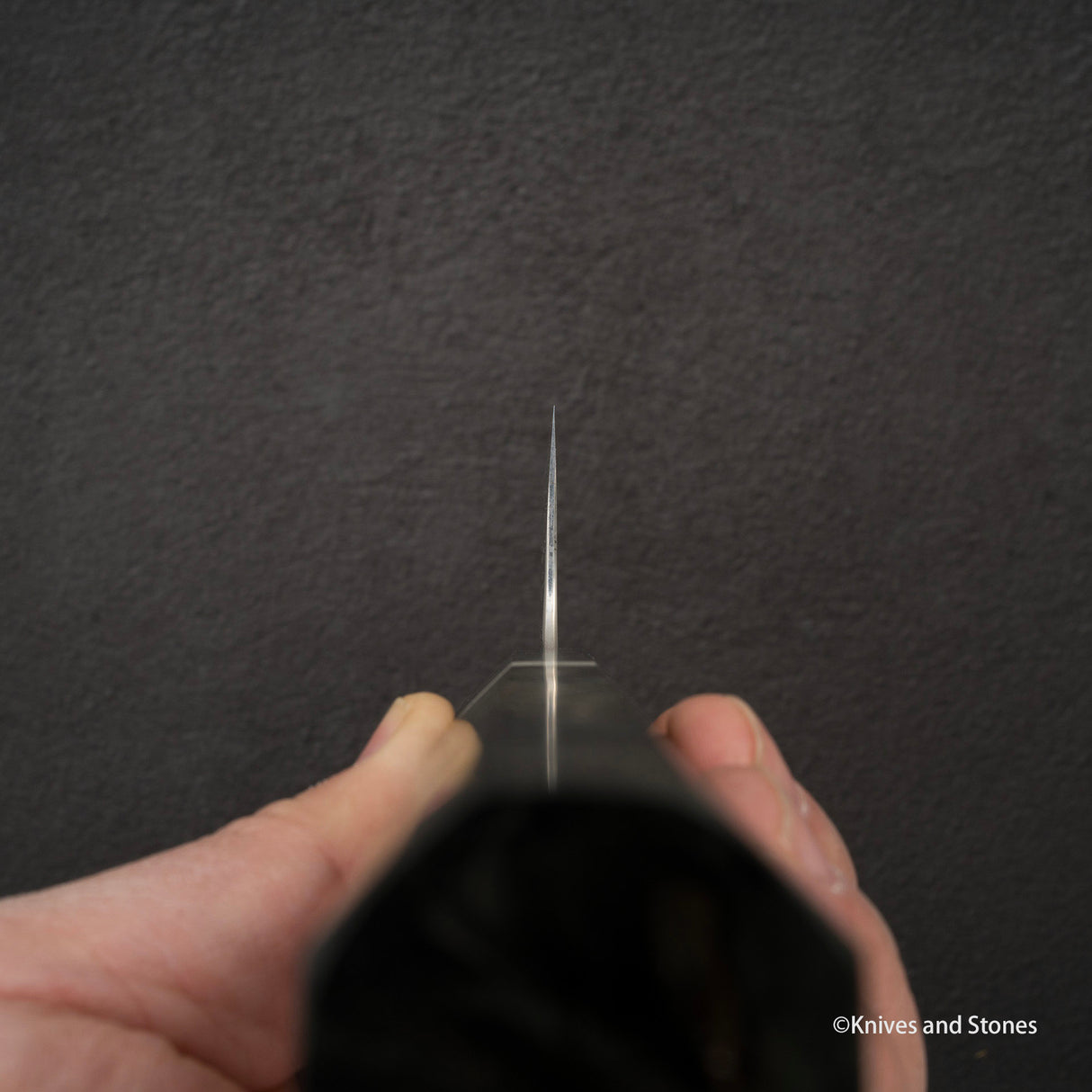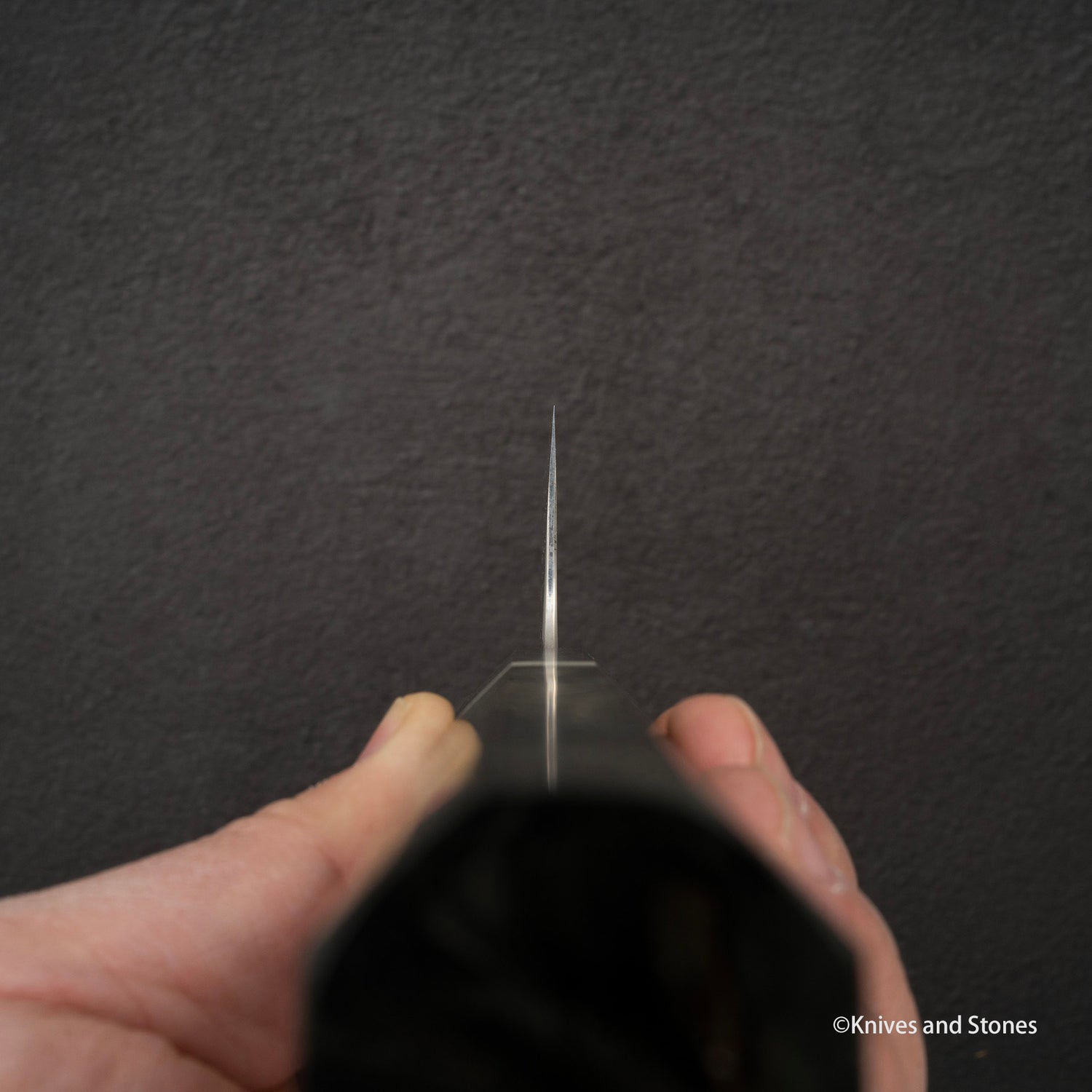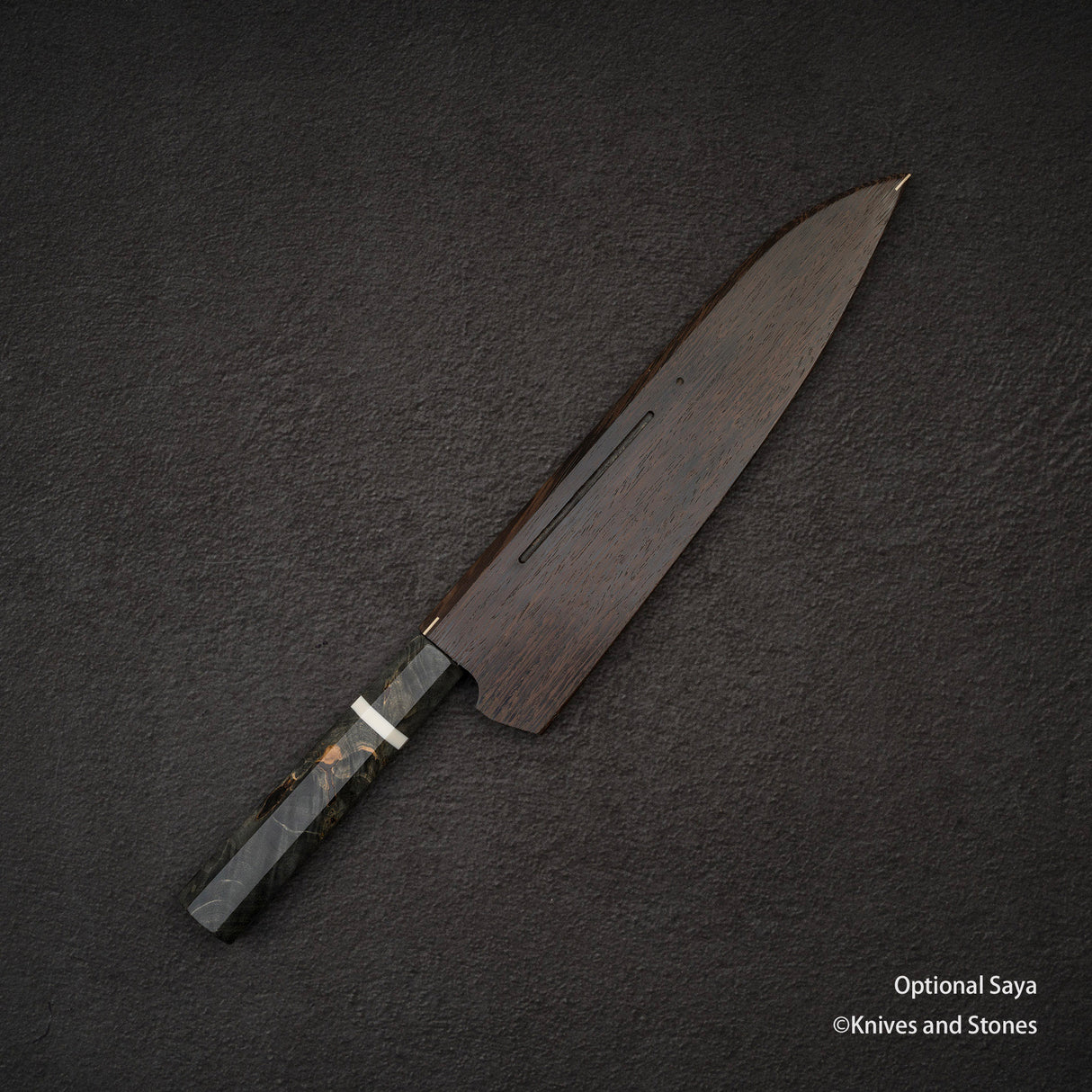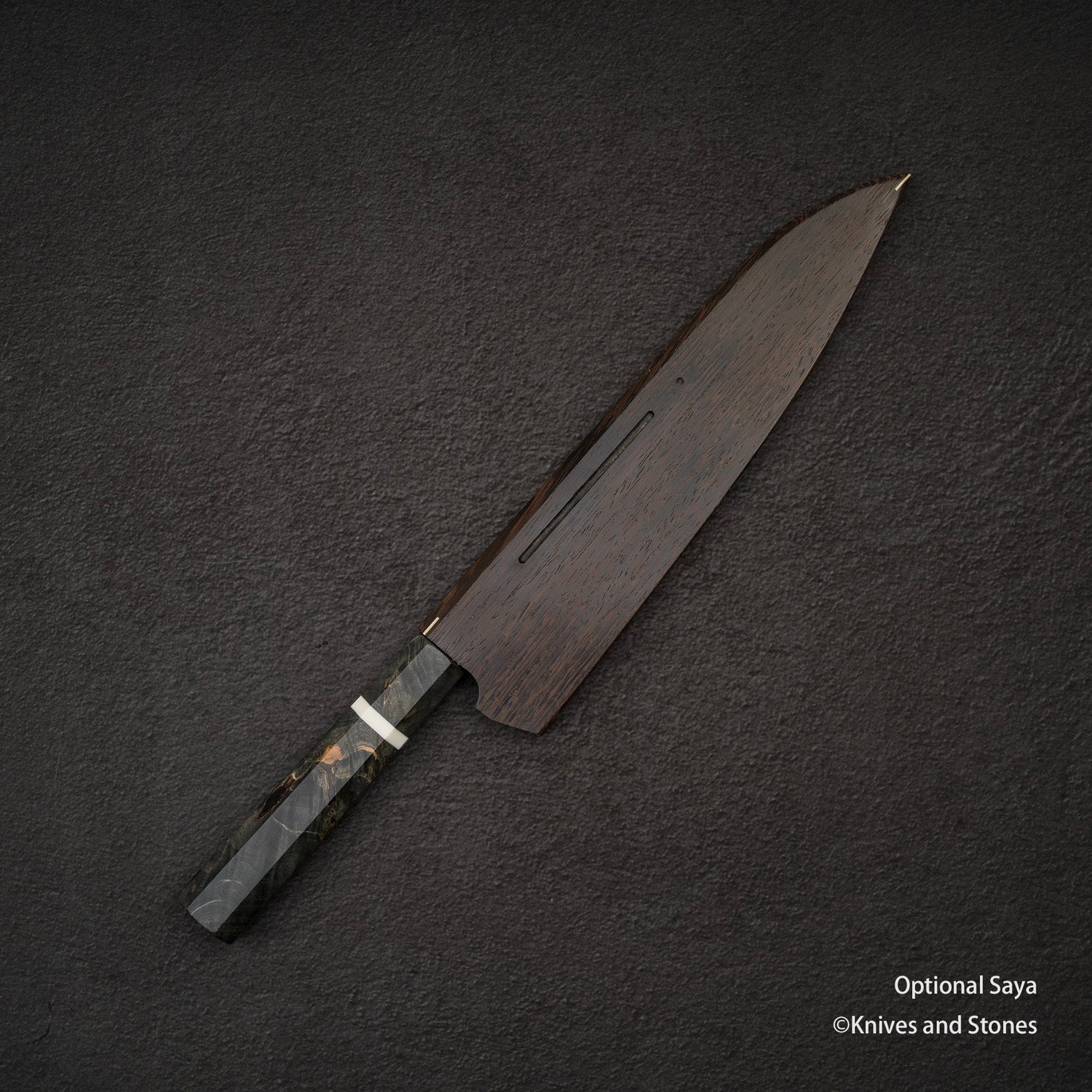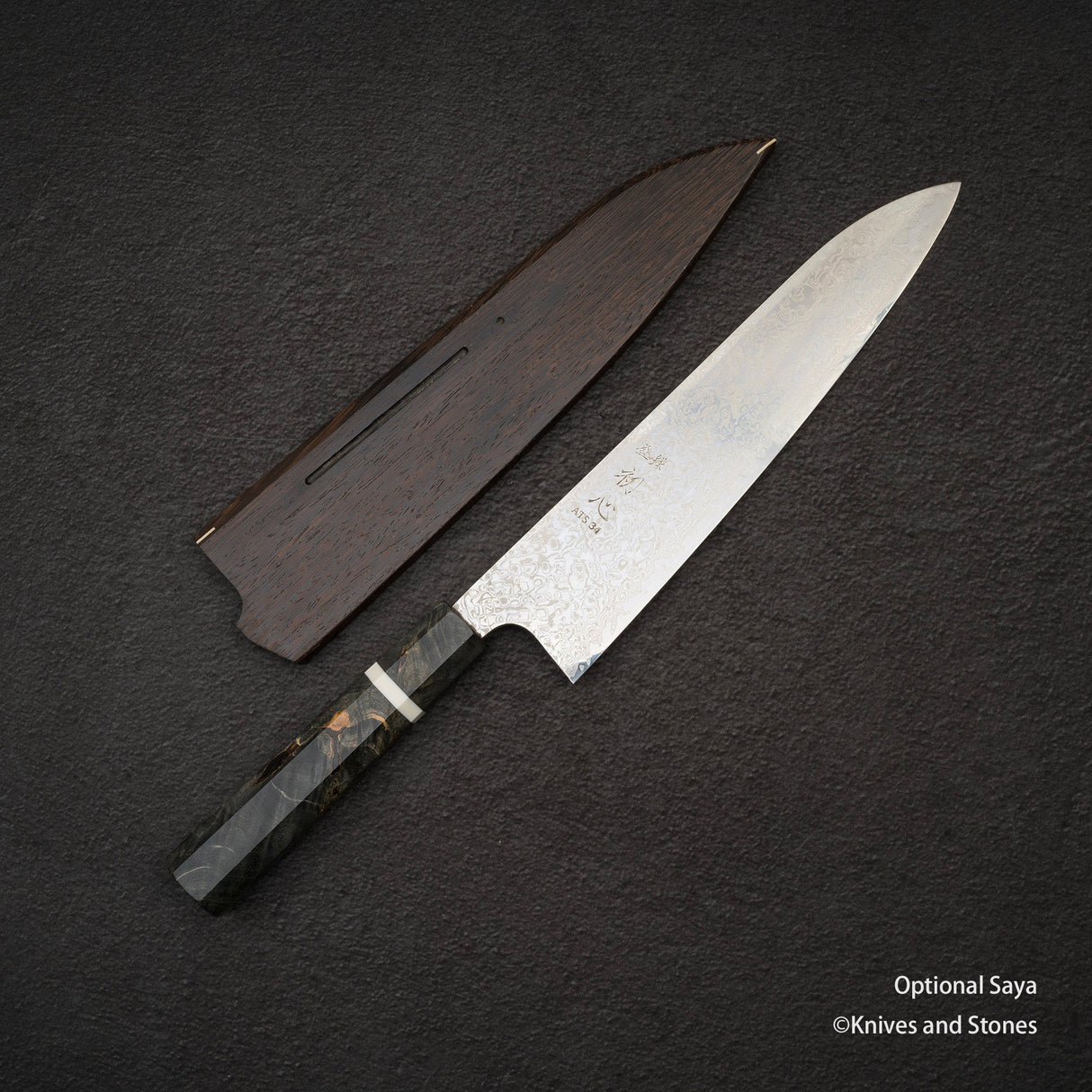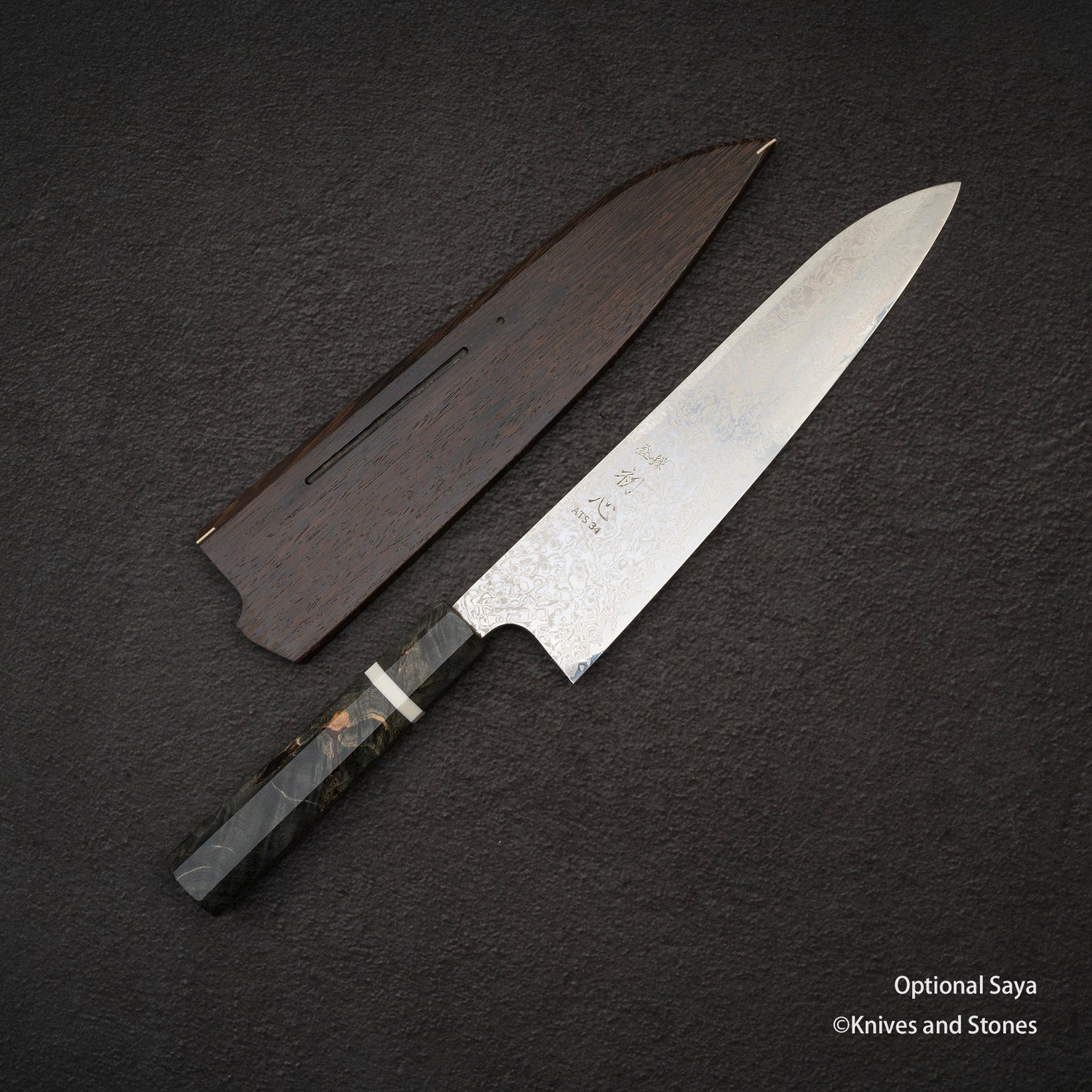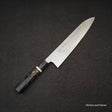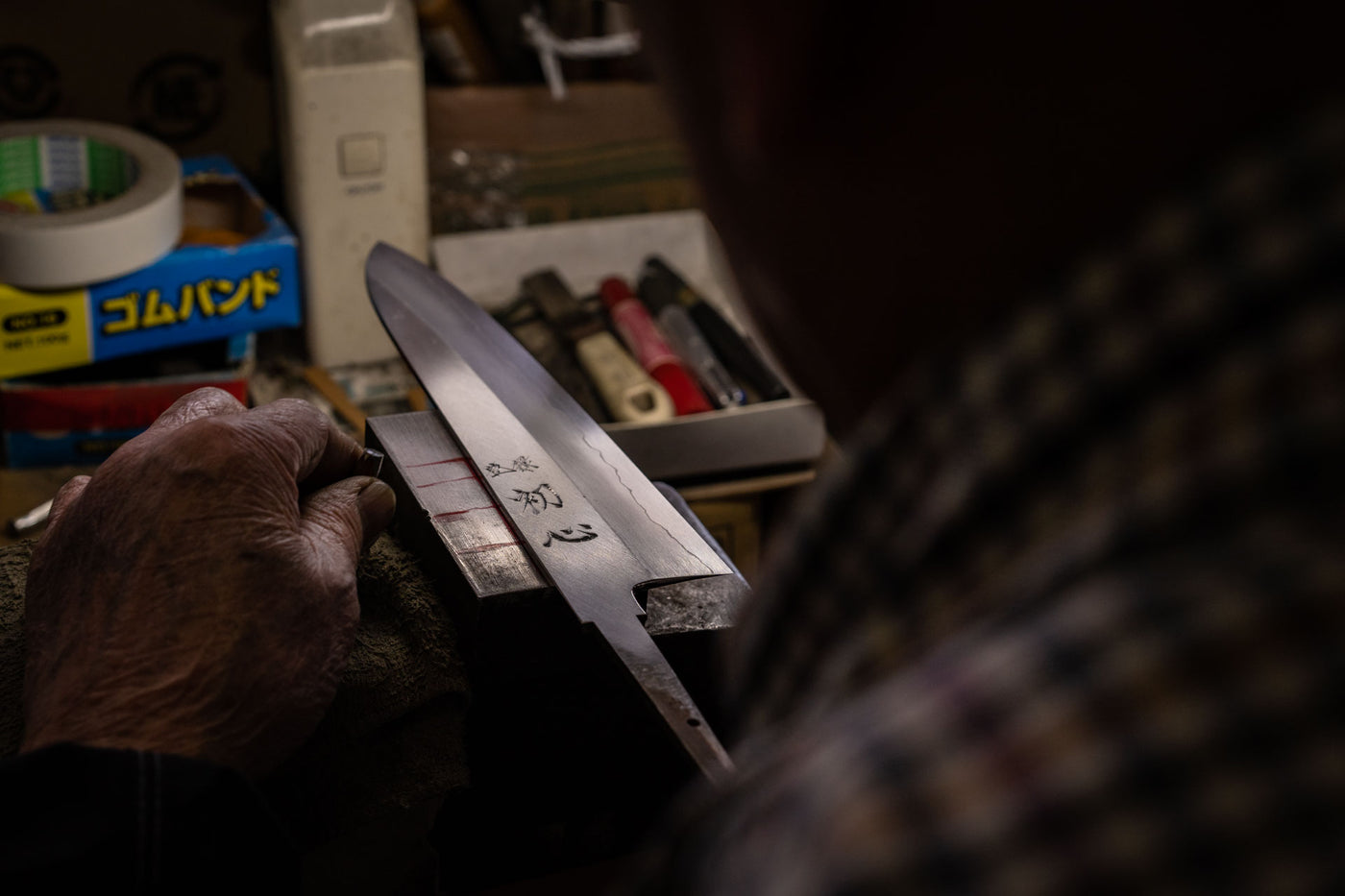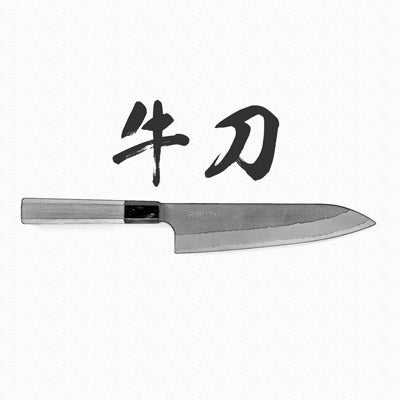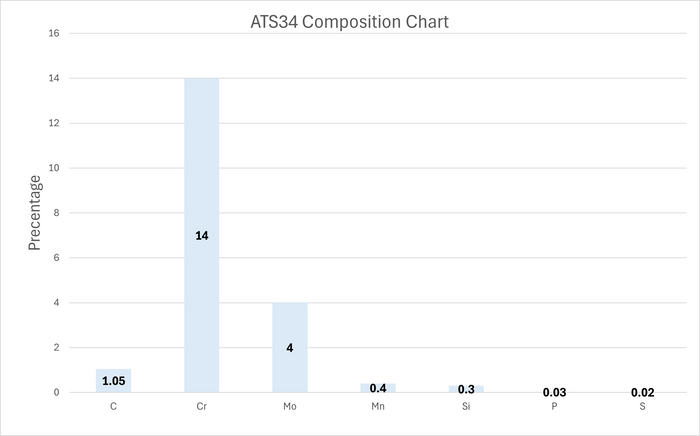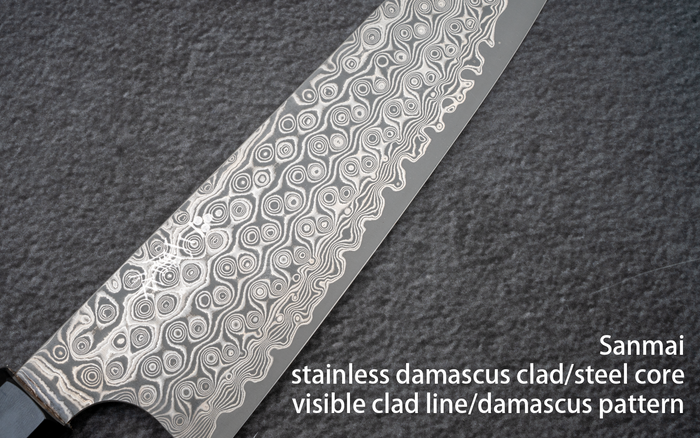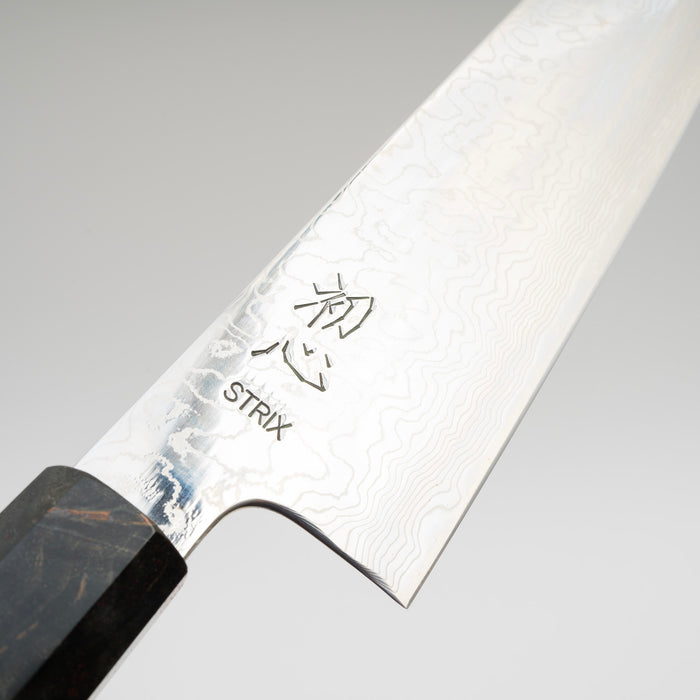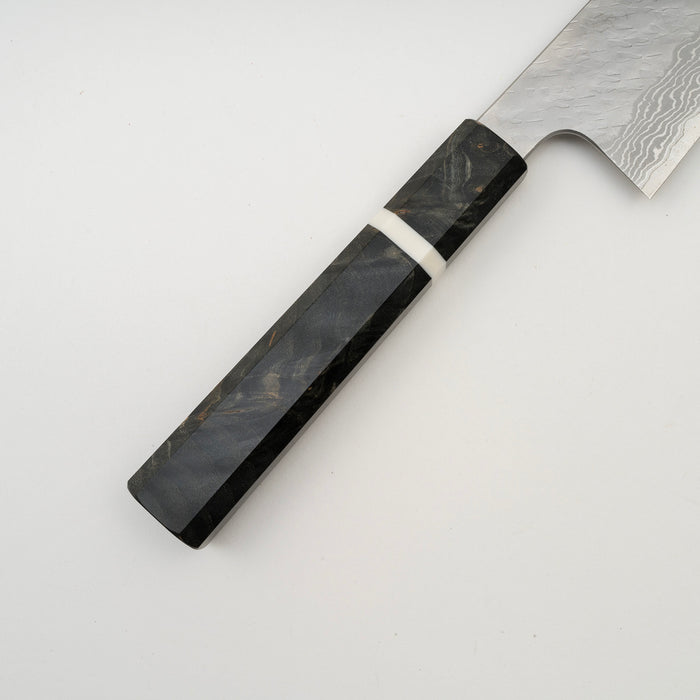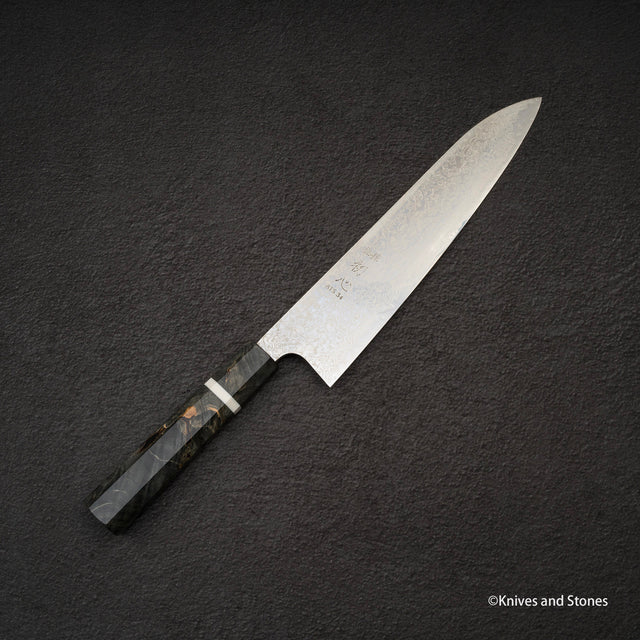Hatsukokoro Ginga ATS34 Damascus Gyuto 240 mm
Hatsukokoro Ginga ATS34 Damascus Gyuto 240 mm is backordered and will ship as soon as it is back in stock.
Couldn't load pickup availability
| Syoukon Hamono | AU $518.39 | --5.58% |
* For overseas buyers you pay no GST (10%) and low shipping rate.
Last Update: 2024-04-01T01:00:47Z
Detailed Specifications
| Line | Hatsukokoro Ginga |
| Profile | Gyuto / Chefs Knife |
| Bevel Type | Double Bevel |
| Weight | 210 g 7.41 oz |
| Edge Length | 241 mm .9.49 inch |
| Heel Height | 53 mm .2.09 inch |
| Width @ Spine | 2.7 mm 0.11 inch |
| Width @ Mid | 2.2 mm 0.09 inch |
| Width @ 1cm from Tip | 0.9 mm 0.04 inch |
| Steel | ATS34 | Stainless |
| Blade Construction | Sanmai - Stainless Damascus Clad |
| Hardness (HRC) | 60 - 61 |
| Surface Finish | Mirror Polish |
| Handle | Octagonal Birch Burl with Spacer |
| Region | Hyogo |
| Best for |
|

| Pros | Cons |
|
|
|
Care Instruction
- Don't cut hard things! Japanese knives are brittle so bone hacking is a NO NO!
- Wash with netural detergent after use, and wipe dry;
- Please don't wash knife with dishwasher, it will damage the wood handle;
- Be careful not to leave the knife close to a heat source for a long time;
- It is a lot more dangerous to cut with a blunt knife than a sharp knife!
- It is best to sharpen a Japanese knife regularly on a waterstone.

